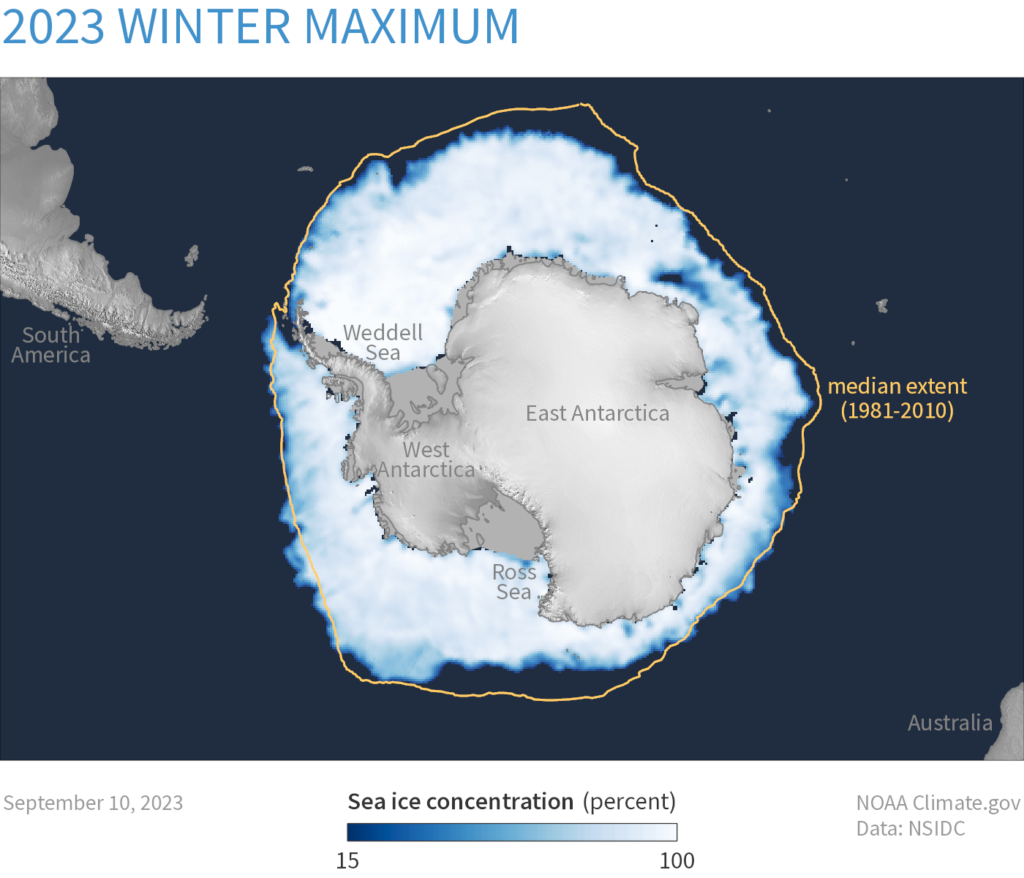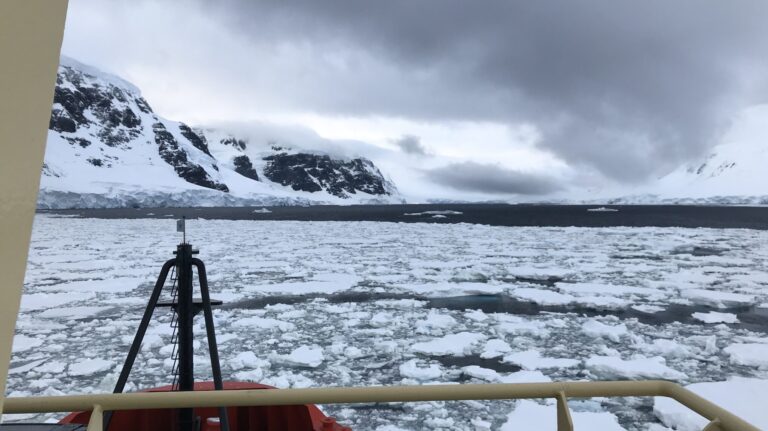University of Washington researchers have published an open-access study in Nature Communications Earth & Environment, which reveals that record-low Antarctic sea ice can be explained by wind patterns.
Understanding the record-low Antarctic Sea Ice
The research, funded by the National Science Foundation and the US Department of Energy, shows that the all-time record low Antarctic Sea Ice in 2023 can be explained by warm Southern Ocean conditions and patterns in the winds that circled Antarctica months earlier, enabling forecasts for sea ice coverage around the South Pole to be generated six or more months in advance. This could support regional and global weather and climate models.
“Since 2015, total Antarctic sea ice area has dramatically declined,” said lead author Zac Espinosa, a UW doctoral student in atmospheric and climate science. “State-of-the-art forecasting methods for sea ice generally struggle to produce reliable forecasts at such long leads. We show that winter Antarctic sea ice has significant predictability at six- to nine-month lead times.”
Updating the global climate simulation
The authors used a global climate model to simulate how ocean and air temperatures, including longer-term cycles like El Niño and La Niña, affect sea ice in the Southern Ocean. Results showed that the 2023 El Niño was less important than previously thought. Instead, an arching pattern of regional winds and their effects on ocean temperatures up to six months in advance could explain 70% of the 2023 record-low winter sea ice. These winds cause ocean mixing in the Southern Ocean that can pull deeper warm water up to the surface, thus suppressing sea ice growth. Winds can also push sea ice poleward toward Antarctica to prevent the sea ice edge from expanding north, transport heat from lower latitudes toward the poles, and generate ocean waves that break up sea ice. Using the same approach for the 2024 observations correctly predicted that this would be another low year for Southern Ocean sea ice cover.

“It’s interesting that, despite how unusual the winter sea ice conditions were in 2023 and again in 2024, our results show they were remarkably predictable over six months in advance,” said co-author Edward Blanchard-Wrigglesworth, a UW research associate professor of atmospheric and climate science.
Although doctoral student Espinosa does most of his research with a computer, last summer he participated in a research expedition to study Arctic sea ice in the field.
“Antarctic sea ice is a major control on the rate of global warming and the stability of ice on the Antarctic continent,” Espinosa said. “In fact, the sea ice acts to buttress ice shelves, increasing their stability and slowing the rate of global sea level rise. This ice is also important for marine and coastal ecosystems.”
As summer arrives in the Southern Hemisphere, the current sea ice extent remains sparse around Antarctica, close to a record low for this time of the year.
“Our success at predicting these major sea ice loss events so far in advance demonstrates our understanding of the mechanism that caused them,” said co-author Cecilia Bitz, a UW professor of atmospheric and climate science. “Our model and methods are geared up to predict future sea ice loss events.”
In related news, the University of Washington recently examined a deep-learning approach to understanding how small changes to initial conditions impact weather forecasts and how deep-learning frameworks could result in near-perfect 10-day weather forecasts. Click here to read the full story.



